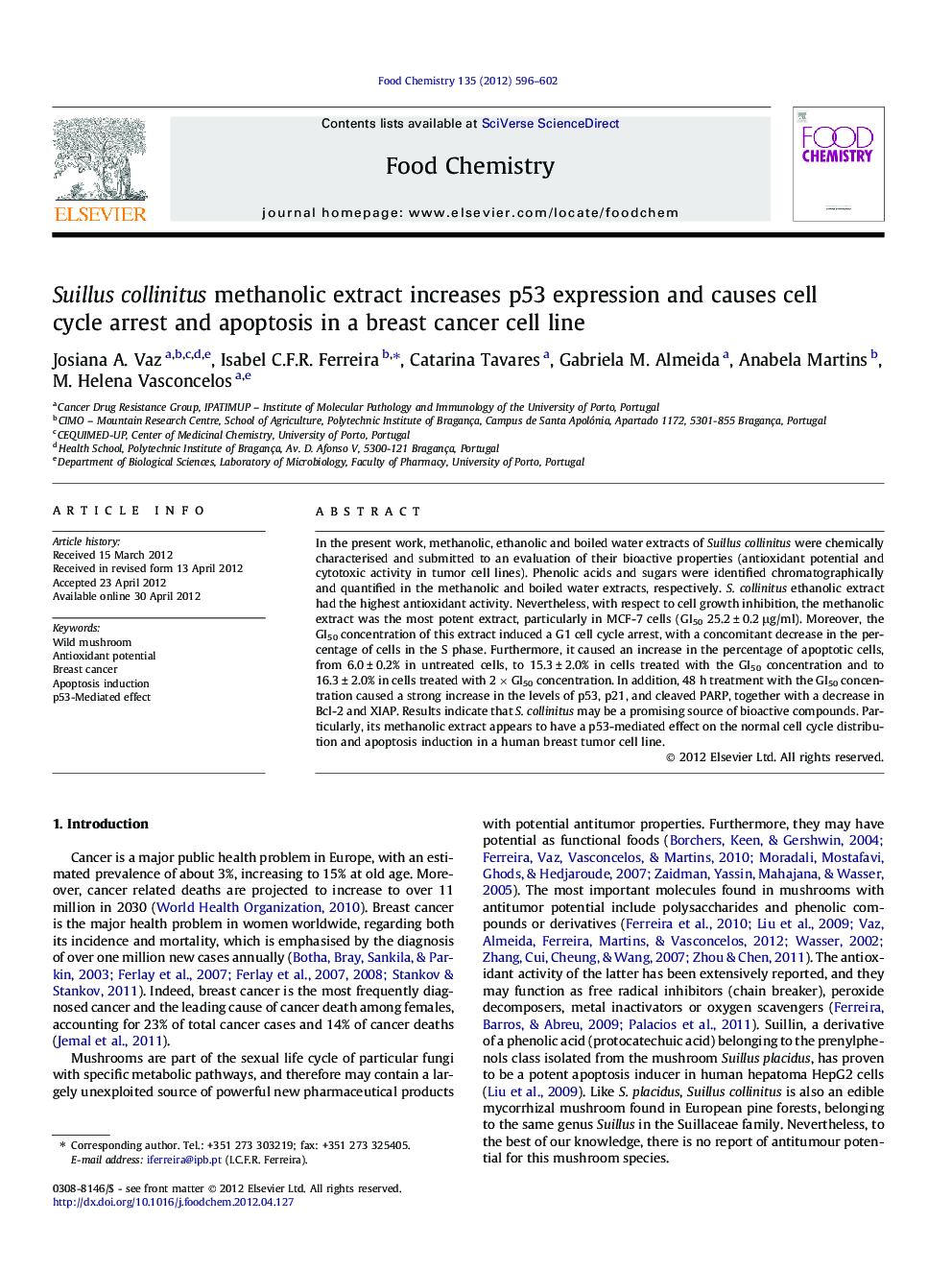| Article ID | Journal | Published Year | Pages | File Type |
|---|---|---|---|---|
| 1185773 | Food Chemistry | 2012 | 7 Pages |
In the present work, methanolic, ethanolic and boiled water extracts of Suillus collinitus were chemically characterised and submitted to an evaluation of their bioactive properties (antioxidant potential and cytotoxic activity in tumor cell lines). Phenolic acids and sugars were identified chromatographically and quantified in the methanolic and boiled water extracts, respectively. S. collinitus ethanolic extract had the highest antioxidant activity. Nevertheless, with respect to cell growth inhibition, the methanolic extract was the most potent extract, particularly in MCF-7 cells (GI50 25.2 ± 0.2 μg/ml). Moreover, the GI50 concentration of this extract induced a G1 cell cycle arrest, with a concomitant decrease in the percentage of cells in the S phase. Furthermore, it caused an increase in the percentage of apoptotic cells, from 6.0 ± 0.2% in untreated cells, to 15.3 ± 2.0% in cells treated with the GI50 concentration and to 16.3 ± 2.0% in cells treated with 2 × GI50 concentration. In addition, 48 h treatment with the GI50 concentration caused a strong increase in the levels of p53, p21, and cleaved PARP, together with a decrease in Bcl-2 and XIAP. Results indicate that S. collinitus may be a promising source of bioactive compounds. Particularly, its methanolic extract appears to have a p53-mediated effect on the normal cell cycle distribution and apoptosis induction in a human breast tumor cell line.
► Suillus collinitus ethanolic extract gave the highest antioxidant activity. ► The methanolic extract inhibited the growth of four different tumour cell lines. ► The breast cancer cell line, MCF-7, was the most susceptible. ► The extract increased p53 expression and caused apoptosis and cell cycle arrest. ► The combined use of the extract and etoposide might have benefits.
